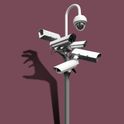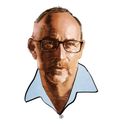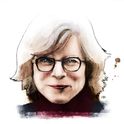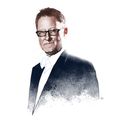What is the first news event you can recall?
I remember snippets of newsy things—the war in Bosnia, the 1992 US election—from the years before I was 10 or so, but the first political saga lodged in my mind is the frenzy around Monica Lewinsky and Bill Clinton’s subsequent impeachment. Needless to say, it raised all sorts of questions in my preteen mind, many of which I naively, with the best of intentions, voiced around the dinner table. I don’t recall many adults keen to answer.
What is the biggest problem of all?
Well, there are lots. People—sociopaths—playing music, taking Zoom calls or watching YouTube and TikTok in public places without headphones is surely one of them. People themselves have got to be on the list, too. As Jerry Seinfeld said, “People. They’re the worst.” Another tough one is that we seem to be placing less importance on virtue, by which I mean: wisdom, courage, temperance, love. People would be less of a problem if more of them practised those. Also a problem: AI.
Which of your ancestors or relatives are you most proud of?
My father. He exemplifies the virtues that I mentioned above, plus the rest I left out. He is a writer himself and a teacher. He coached my baseball teams and took me around the country to watch baseball games; he encouraged me in everything I did. So I’ve always been proud of him, but those feelings are perhaps more concrete now that I have kids of my own. I am getting the creeping sense that it’s hard to raise a bunch of kids and have them turn out halfway decent and have them love you to boot. That my dad pulled off that trifecta? Lots to be proud of.
If you could spend a day in one city or place at one moment in history, what would that be?
A day in Damascus, Syria, under the Abbasids.
What have you changed your mind about?
College. Random, right? I used to think it really mattered and now I think it’s mostly a scam.
Your previous book, Damascus Station, was set in a place you’ve worked. Moscow X is mostly not. Did this make it easier or harder?
Much, much harder. It made me obsessively tinker with the (fictional) world to try to make it as authentic as possible. And it made me double-down on all the research because I knew that I knew so little to start. It was not good for my health.
What have you learnt about Russia that most chills or cheers you?
I’m not sure if it’s chilling, but I find the gulf in Russian and western (specifically American) views of freedom to be depressing. We have a tendency to mirror-image “the Russian people”, to assume that they want the same things we do, that the hopes and desires of Americans are an acceptable proxy for what most Russians hope and desire. I’m not sure it’s true, or at least it’s not true often enough. It’s one of the reasons there has not been much sustained, energetic and organised opposition to the war inside Russia. Americans would protest and scream for freedom, but many (most?) Russians put their heads down and just try to get by, or get their dose of autonomy in some other, more limited way.
Do you have a view on how the west should approach the situation in Ukraine?
That we should help the Ukrainians win.
What would people be surprised to know about you?
I have been to Disney World more than 300 times. Part of my childhood was spent in Orlando, where we had Florida resident passes. These enabled us to enter the park for about nine months out of the year for the price of a single day’s admission. Once, as my parents called for me and my sister to get ready, I hid under the bed in the hopes of avoiding a dreaded trip to The Most Magical Place On Earth.
What do you most regret?
That might be tough for you to print.
David McCloskey is the author of the hit spy novel “Damascus Station”. His new novel “Moscow X” has just been published in the UK (Swift Press, £18.99)












